Women in Pharma®: Empowering Women as Industry Leaders
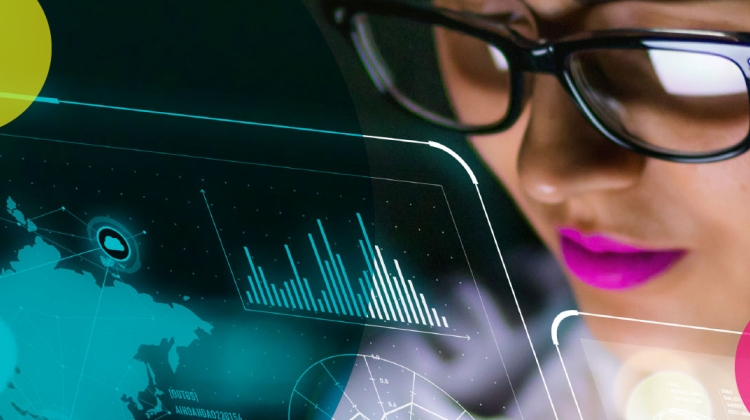
Women in Pharma® is a place where women and men—especially those new to the industry—can access a network of mentors, role models, and educational resources to support their professional success. The widespread global interest and participation in this initiative and its events have shown that women in the pharmaceutical industry are hungry for the connection, mentoring, and education that Women in Pharma offers.
Scuba divers have a rule: never dive alone. This is a rule that Vivianne Arencibia, President and Owner, Arencibia Quality and Compliance Associates, LLC, and Co-chair of the Women in Pharma® (WIP) Steering Committee, follows whenever she scuba dives. Not only is it nice to have company—it’s safer. Buddies keep each other in sight, don’t stray too far away, and regularly check on each other’s oxygen levels. All of their communication is done with signals to let the other know that everything is all right. And if there’s an emergency, having a buddy is essential to being able to return to the surface safely.
For Arencibia, who has been in the pharmaceutical industry for 33 years, including 22 years at Novartis, where she held senior leadership positions, this “never dive alone” rule applies just as much to her career as a woman in pharma. As one of five women on the Women in Pharma steering committee, she knows, like so many others in the industry, what it’s like to juggle a career and personal responsibilities, which for her include leading a consulting business and being a single mother with four children.
“Many of the younger women who I mentor want to do it all and often ask me how I juggle my career and family responsibilities,” Arencibia said. “I have to tell them: sometimes really well, sometimes not. But one thing I have learned is to rely on others and not try to do everything myself.
“In spite of the fact that many women have come into the life sciences, it’s still a male-dominated field. Many women still struggle with working in such a field, and the ability to reach out to other women—not just professionally—to speak to issues that are unique to women and to lift each other up is very important to us.”
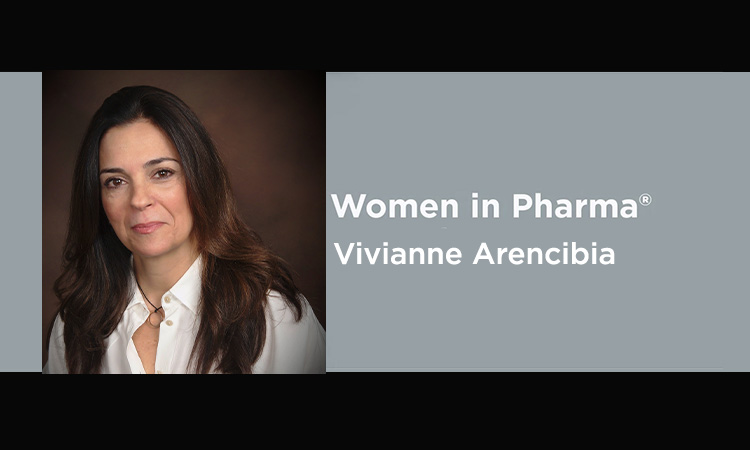
Mission-Focused Forum
This desire to lift each other up is at the core of the Women in Pharma mission. Women in Pharma® provides a forum for women and men who are ISPE members to connect and collaborate on topics that impact their technical work and career advancement. Women in Pharma® also provides the mentors, role models, and educational resources that can help support both women and men throughout their careers. The widespread global interest and participation in Women in Pharma® and its events has shown that women in the pharmaceutical industry are hungry for the connection, mentoring, and education that the program offers.
“Everyone’s so passionate about this because it’s such an important initiative,” said Jennifer Lauria Clark, Executive Director for Strategic Development, CAI, and Chair of the Women in Pharma® Steering Committee. “This is a time in history when people are realizing that there’s much more diversity out there and that there could be more empowerment for women. Women in Pharma is allowing us to create leadership positions, volunteer opportunities, and exposure for people to get engaged and be visible.”
The enthusiasm with which Women in Pharma® has been met has allowed it to be largely self-sustaining through donations and fundraising. Women in Pharma® works to raise money and create scholarships for students and Emerging Leaders (formerly Young Professionals), who would not otherwise have access to the Women in Pharma® and ISPE programs.
“Supporting and expanding Women in Pharma is specifically called out in the ISPE Strategic Plan,” said Joanne R. Barrick, RPh, Advisor, Global Validation, Technical Services/Manufacturing Science, at Eli Lilly and Company, and the 2020–2021 ISPE International Board of Directors Chair. “This is an important part of driving member value and ensures inclusion of experiences based on professional areas of interest and demographics.”
“The broad interest our members have demonstrated in the WIP program has made it one of the more participatory activities we have in the Society, and it continues to grow,” said Thomas Hartman, ISPE President and CEO. There has been so much growth, Hartman said, “that we now have specific line items in our budget to support WIP, reflecting the program’s relevance and importance to ISPE’s members and our mission, and enabling us to shine a light on the value that women bring to the pharmaceutical industry.”
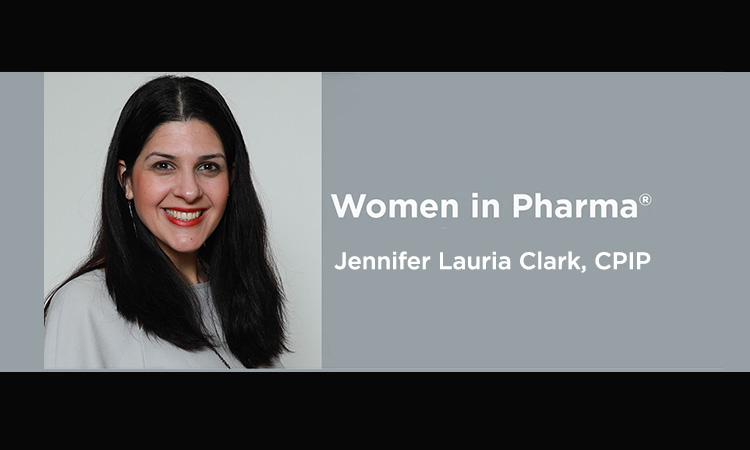
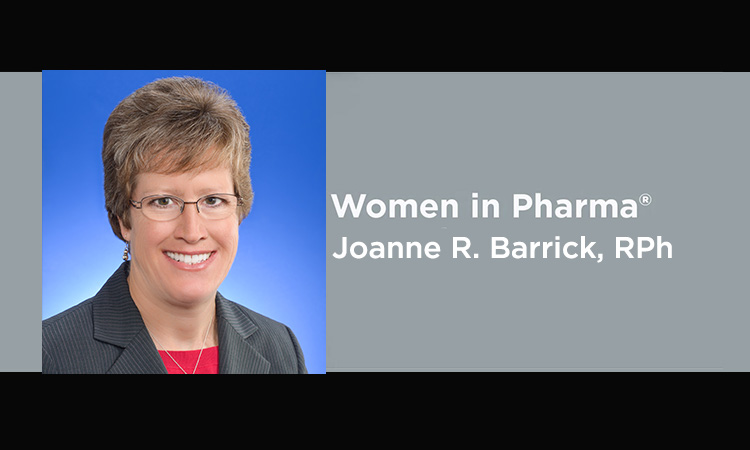
All About Women in Pharma®
Women in Pharma® aims to:
- Empower women as leaders in the industry
- Build and leverage diversity to drive operational excellence within the workplace
- Establish mentor/mentee relationships
- Expose as many women as possible to opportunities in technology and science
In addition to these priorities, Women in Pharma® set itself two specific goals for 2020: (a) to raise $25,000 for the ISPE Foundation to continue programming, operations, and scholarships for Women in Pharma® and (b) to expand the number of Mentor Circles from six in the US to 20 worldwide by the end of the year.
Women in Pharma® has experienced active growth over the past year. Most of the 39 ISPE Chapters (in the US) and Affiliates (globally) have a Women in Pharma® group leader. Seventy people are either Mentor Circle leaders or Women in Pharma® Chapter and Affiliate leaders. Hosted webinars are well attended, with as many as 150 participants, including many men. Women in Pharma® also exceeded its 2020 goal by reaching 21 Mentor Circles globally as of last October, and the number continues to grow.
Women in Pharma® hosted a Proactive Career Design session at the 2020 ISPE Facilities of the Future Conference in January 2020, as well as “24 Hours with Women in Pharma” on 27–28 October 2020, prior to the 2020 ISPE Annual Meeting & Expo. The virtual 24-hour-long program included 16 sessions throughout the day to accommodate people in different time zones. Following a webinar to kick off the event, sessions were comprised of Mentor Circles, book clubs that discussed Sheryl Sandberg’s Lean In: Women, Work, and the Will to Lead, and confidential conversations. The latter are small-group, women-only meetings to discuss five difficult topics in a confidential space. These conversations are the only Women in Pharma® events meant solely for women.
The Bridge is Women in Pharma®’s monthly newsletter for ISPE Chapter and Affiliate Women in Pharma® leaders that provides news, shares best practices, and ensures all Women in Pharma® groups are aligned with the policies and procedures of the ISPE Charter. The digital newsletter also contains news highlights, announcements of upcoming events, and messages authored by different members of the ISPE Women in Pharma® Steering Committee.
Clark sees The Bridge, as well as the Women in Pharma® Editorial that began publishing during 2020 in Pharmaceutical Engineering®, as occasions to share individual accomplishments and highlight what is important to women in the industry. The editorial in Pharmaceutical Engineering® is written by different representatives from the steering committee, ensuring a range of distinct perspectives are presented.
Women in Pharma®: In the Beginning
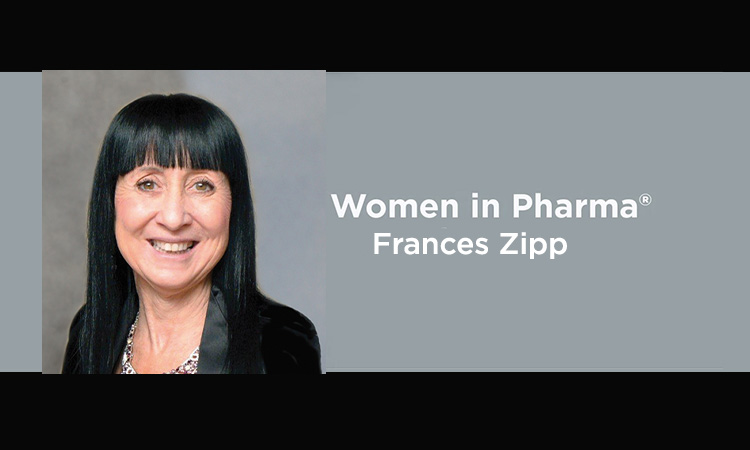
When Frances Zipp, President and CEO, Lachman Consultant Services, and Past Chair of the ISPE International Board of Directors, was elected to the ISPE Board in 2013, she was asked to get involved with a group that would focus on the personal and career interests of women.
“I was reluctant at first,” Zipp said. “I never associated with a group that was just for women and have never played the ‘women’s card.’”
She helped gather a small group of women and men to brainstorm what such a group could be and what purpose it would serve. They trademarked the name Women in Pharma, liking how it played off “work in progress,” a common industry term.
“We intended it to be a group that would be supportive of women in the industry, either as men supporting women or as women mentoring each other about things like career progression and work/life balance,” said Zipp, who has worked in the pharma industry for 35 years. “It is a group for women—and men—that has been supported by men in senior positions from its inception.”
It was important to Zipp that the focus of the group was not complaining about the way things were. “From my perspective as the first Chair of Women in Pharma®, as a single mother and raising three children as I developed my career, I don’t see this as a diversity initiative.” Instead, the focus for her has always been about equality and the value of discovering opportunities, learning how to promote oneself, and sharing these insights with colleagues. The impetus for Women in Pharma® was that, at the time, there weren’t a lot of women senior-level engineers and there was a focus to get more women into the industry.
First Steps
Women in Pharma® was launched in Atlanta at the 2016 ISPE Annual Meeting, with sessions and breakouts that included a large number of men, including some in senior leadership positions. The inaugural Women in Pharma® meetings included panel discussions and breakouts. Sessions were attended by women and men, and Women in Pharma® sold Women in Pharma buttons to raise funds for the initiative, some of which would later provide scholarships.
“We found sponsors and sold buttons at conferences and meetings for $5 for students and $10 for those with jobs,” said Zipp. “It really took off. You’d see most of the speakers at these conferences wearing a button.”
Zipp recalls a colleague, senior in the industry, speaking at a conference and admitting that she knew that she wasn’t the most qualified candidate when she was hired for her first job. “But she told us that she really wanted that job, and she got it,” Zipp said. “To me, that’s the type of message people who are early in their careers needed to hear.”
Jennifer Lauria Clark, Executive Director for Strategic Development, CAI, and current Chair of the Women in Pharma® Steering Committee, also remembers that inaugural meeting. “Even though we thought it was great, we came away from that experience wanting to do more. We didn’t want to just put women on the podium. We wanted to inspire women to put themselves on the podium. We wanted to help them feel empowered to submit an abstract because, traditionally, most women weren’t submitting abstracts. So we thought it was our role to be champions to help support women to step up in the industry.”
Zipp reflected on the sacrifices that women had to make during the time when she was early in her career. “In my day, I couldn’t make the choice to go to parent-teacher meetings or a child’s soccer or lacrosse game. I couldn’t do that if I wanted to succeed in my career.” Now, with the COVID-19 pandemic adding pressure on people who were already juggling career and personal responsibilities, Zipp sees that families are having to make tough choices that are best for them. Some may choose to take a less senior position to focus on family needs. Others will choose to prioritize their careers. “WIP recognizes that women and men make choices and we are completely nonjudgmental about those choices. Instead, if someone wants to change careers or area of focus, WIP can be a safe haven for networking and a place to find a mentor to help with the transition.”
Zipp believes Women in Pharma® has had a tremendous impact on the industry. Women are now working at all levels, side by side with men. She likes that the focus is on mentorship, not just social interactions. “When I first started, I had 20 different women ask for mentoring. It was a full-time job. We had company-sponsored discussion tables, sponsored by both male and female senior leaders.
“I’m thrilled with the direction WIP has taken. WIP is now positioned to provide mentorship, technical support, and social guidance. I’m so proud of the team and all we’ve accomplished.”
Scott FotheringhamFostering Diversity
Women in Pharma® is having an impact on ISPE and the industry, especially when it comes to enhancing diversity. This diversity isn’t just related to gender or ethnicity; it is bringing a wider range of cultures and experiences to the table.
“WIP is pushing to expand to minority groups and to bring people from around the globe together to naturally create a more diverse group with different backgrounds and experiences,” Hartman said. “The more diversity of race and gender we have in all our ISPE committees and networks, the better we’ll be able to truly represent our diverse, global membership.”
Leadership is one area where more diversity would be welcome. Although 42% of science professionals are women,1 women fill only one-third of senior leadership positions, and are only 13% of CEOs in the healthcare industry.2 The numbers are even more discouraging among the top 50 pharmaceutical companies, where only 17% of board members are women.3 This disparity not only adversely affects the prospects of professional women but also impacts the bottom line of companies. Those companies with the most gender diversity at the executive level are likely to outperform the least gender-diverse companies by 48%.4
“Women in Pharma is a way to increase diversity in the pharmaceutical industry,” said Barrick. She noted that there is an additional benefit of Women in Pharma®. “There’s going to be a shortage of talent, and this is another way to bring that talent into the industry.”
Women in Pharma® is helping change the face of the industry through such events as panel discussions at ISPE conferences that focus on diversity, including a breakfast session at the 2019 ISPE Biopharmaceutical Manufacturing Conference. Women in Pharma® has held breakfast sessions on many topics at most recent ISPE conferences.
One series of events that highlights the diversity that exists, not just within Women in Pharma® but in the industry as a whole, are sunrise to sundown conversations. These are scheduled over 24 hours to include participation from every time zone, reflecting the global nature of the industry and ISPE. One of the first was hosted by the Eurasia Economic Union Affiliate’s Women in Pharma® group, which has 200 members.
“It was so good to connect with them,” Arencibia said. “The energy comes from forgetting the boundaries and connecting as women in the industry internationally without defining ourselves as American or Russian. It doesn’t matter where you reside. Whether you’re in India or Brazil, it’s about connecting and finding a voice that speaks on behalf of women in the industry.”
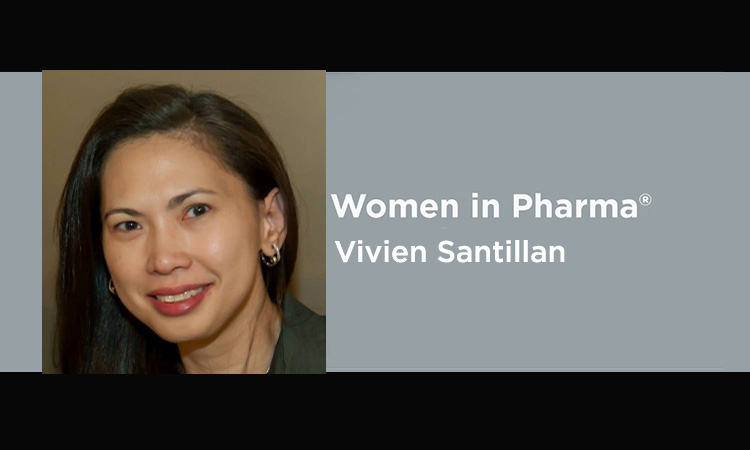
Worldwide Women in Pharma®
Women in Pharma® has active committees in its Asia Pacific Council (APAC) Affiliates in Australasia, India, Indonesia, Japan, Malaysia, the Philippines, Singapore, and Thailand. Women in Pharma® also has active committees in the European Union and South America, as well as in the US.
The APAC WIP committee, with representatives from each Affiliate, functions to coordinate, collaborate, and share best practices among the region’s ISPE Affiliates. The Women in Pharma® program further strengthens collaboration by holding joint Women in Pharma® events, such as the ISPE WIP APAC conference held 12 November 2020.
“Asia is culturally diverse, including the way business is done in each country or Affiliate,” said Vivien Santillan, Regional Director for Asia, Novatek International, President of the ISPE Philippines Affiliate, Chair of the Asia Pacific Council, and a member of the Women in Pharma® International Steering Committee. Each country in the region has different concerns or issues, depending in part on whether they are more technologically advanced (e.g., Australia, Singapore, and Japan) or belong to the emerging markets category (e.g., India, Indonesia, the Philippines, and Thailand).
The demographics of the industry in the Asia-Pacific region are also quite different from those in North America and Europe. “There is greater involvement of women in the region, and the industry is predominantly led by women here. Most of the ISPE APAC leadership are women,” said Santillan.
In APAC, where the Women in Pharma® program is relatively new and rapidly expanding, organizers are hoping to continue the momentum by providing opportunities for members to build on their technical knowledge and career development. Women in Pharma® also became the forum for APAC Affiliates to provide appropriate guidance to students and Emerging Leaders (formerly Young Professionals), through Mentor Circles, including on technical topics in quality assurance, quality control, and manufacturing, as well as soft-skills development like boosting confidence, effective communication, and improving productivity. Santillan is excited to see how Women in Pharma® has helped the mentees who joined a Mentor Circle in their career advancement.
Each APAC Affiliate has its own activities. For example, the Philippines Affiliate has a 10-month mentor program that emphasizes technical and soft skills, whereas Mentor Circles were initiated in the Japan and Singapore Affiliates in 2020. Santillan sees tremendous room for growth in places like India.
“The concerns of work/life balance for working women that exist globally also exist in Asia,” Santillan said. “Asia has a patriarchal culture, in which women are expected to manage the household. This makes it quite a challenge to maintain that balance.”
As in other regions, APAC Women in Pharma® provides opportunities to engage in conversations with a less-technical focus, something Santillan feels is needed even more during the pandemic.
“Discussions on social skills and other nontechnical topics gives members the opportunity to share with like-minded individuals on how their every-day life is outside their usual work routine,” she said. “Women in Pharma gives the members a balance and some form of sanity in these trying times.”
Women in Pharma® and Men
While the mission of Women in Pharma® is to help women enhance their careers and give them resources, tools, and education to improve in their professional and personal lives, men are welcome to participate—and many already benefit from these good ideas.
“It’s so important for men to be involved,” said Clark. “Men will get a better understanding and empathy for what others are going through in their lives and careers.” She sees this as especially helpful during the COVID-19 pandemic. “Working dads and husbands know that their partners who are working from home are currently more stressed out than normal. It is different for the parent who has now become a caregiver, teacher, laundress, and referee. Sharing those pains and creating a space where working professionals can understand what their partner is going through can create a positive outcome for our members. When men participate in WIP events, they’re gaining a lot of education about women in general, and they’re getting to see the vulnerable side and hear the types of conversations that are typically not happening in the workplace.”
Hartman, who retired from GSK last year, is a strong advocate for the role of women in the life sciences and has been an ardent supporter of Women in Pharma® since it started.
“Men who join a Women in Pharma® event should do so to learn other perspectives on life, the work/life balance, and some of the challenges women have in the workplace,” Hartman said. “Learning these things would make men far more effective as colleagues, managers, and in other leadership roles where sup-porting their staff or being able to communicate with their colleagues brings value more effectively to their own careers.”
Clark estimated that about 10%–15% of attendees at many Women in Pharma® events are men. She would like to see more, and she believes that the male attendees are the men who are going to be the champions and who will help their female colleagues advance.
Arencibia agrees, noting that it is important to not underestimate the power of giving women a forum to speak. “Women in Pharma has taken some effort to launch and find its identity, but it really started to take off when it became evident that ensuring the success of women in pharma requires much more than women—it requires our male colleagues.”
After Women in Pharma® invited male industry leaders to discuss how they have supported their female colleagues in their careers, interest in the program really expanded, Arencibia said. “From there, we connected to the Young Professionals and had table breakouts—and all of a sudden, it just took off. I chaired a session and had the thrill of thinking, ‘Oh my God, this is it. It’s just not going to be like it was before.’”
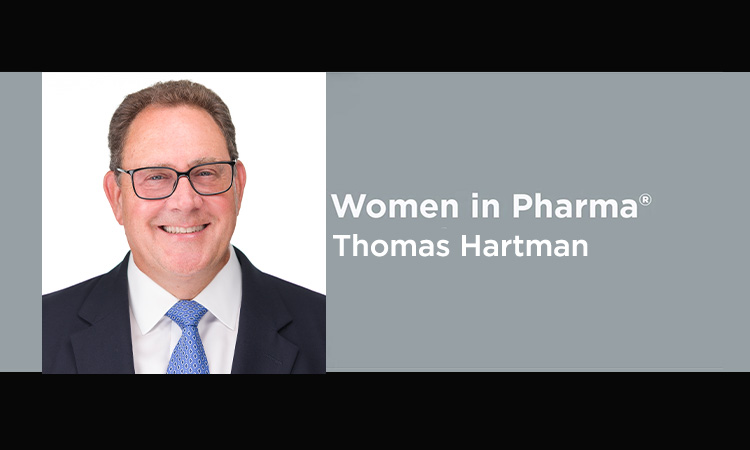
Pandemic Impact
The COVID-19 pandemic turned expectations upside down in 2020 and continues to disrupt businesses, careers, and personal lives. In fact, one in four women working for US corporations is considering downshifting her career due to the pressures that have been exacerbated by COVID-19.5
“It’s heartbreaking for me to hear that women want to downsize their careers because we have worked so hard to get where we are,” said Clark. “I haven’t heard any of my male colleagues say that they’re going to downsize their career to be able to maintain their households. But I have heard my female colleagues and friends say they’re going to have to take a sabbatical from work or quit their jobs because of circumstances created by the pandemic pertaining to childcare and educating their children remotely.”
Like many, Clark admits to finding it more challenging to balance working from home with parenting while her children need to be homeschooled. She is grateful that Women in Pharma® is providing a forum for women to support each other and share their thoughts about these struggles, as Arencibia did in her editorial, “Pandemic Coping Strategies,” in the September/October 2020 issue of this magazine. “By writing about it and talking about it, we’re saying to each other, ‘You are not alone in this situation, and we’re going to get through this together,’” Clark said.
Women in Pharma® has adapted to the pandemic by going virtual. Perhaps counterintuitively, COVID-19 has given the Women in Pharma® Steering Committee the opportunity to initiate programs sooner than anticipated. This includes virtual book clubs, a webinar hosted in May 2020—and attended by 150—that was meant as a pilot to test whether a full-blown women’s conference would be possible, the 24 Hours with Women in Pharma® event held before the 2020 ISPE Annual Meeting, and sunrise to sundown meetings.
“The sunrise to sundown events are a good example of how we’ve adapted to the pandemic,” said Clark. “I attended a really good one. There were people from all over the world on the call, with all of us socializing, discussing books, and even playing a trivia game. I wasn’t sure how the heck we were going to play trivia with 25 women on the phone, but it was awesome. You got to know people through the chat box. We figured out how to have a social time and feel connected, laughing and sharing stories in a virtual environment.”
Once all of their meetings and events needed to be virtual, Women in Pharma® groups were challenged to find a consistent way to host activities. When using free Zoom accounts, hosts found that meetings might end prematurely after 45 minutes and were limited to a certain number of participants.
Three corporate sponsors—Pharmatech Associates, IPS, and PQE Group—provided generous sponsorships to allow WIP initiatives around the world to have access to host their virtual events.
“In some ways, COVID-19 has actually helped Women in Pharma® grow the way it has,” said Tanya Sharma, Principal Consultant, Assurea LLC, and International Mentor Circle Leader for Women in Pharma®. “The focus on hosting virtual events allows us to have regional events that blend the experiences of members from different countries.”
For example, Women in Pharma® held virtual meetings in Latin America, APAC, and Europe last fall. All three had a theme of inspiring women in leadership positions and creating a support network to navigate difficult obstacles, like working from home during the pandemic.
More Growth Ahead
When Women in Pharma® leaders were asked what is next for Women in Pharma®, the overwhelming response was unsurprising. The steering committee wants to grow its base, have more webinars, increase the number of Mentor Circles, and continue to offer opportunities to educate, support, and provide resources to people worldwide.
“I want to see Women in Pharma® recognized as a significant value proposition for joining ISPE,” said Arencibia. “I’d like to see more access to leaders in the industry, and to see more leaders contribute their time and mentoring. I’m passionate about seeing mentoring evolve from the group settings of Mentor Circles to allow women to connect directly with one-on-one mentoring.”
Barrick believes there is an untapped opportunity to publicize Women in Pharma® outside of ISPE, where it is not yet broadly recognized. “The members of Women in Pharma find WIP very attractive and helpful,” Barrick said. “Women who are considering joining ISPE may not be aware that the group exists, and letting them know presents a great opportunity for us going forward. I’d like to see it evolve into a selling point to becoming an ISPE member.”
Some novel initiatives in the works include a merchandise store, a podcast series, a webinar series and more stand-alone webinars, Women in Pharma® conferences, and more fundraising for student travel grants in the US and other developed countries as well as emerging markets.
Clark hopes to encourage members to build stronger relationships within their own companies, and Santillan believes ISPE APAC WIP groups will continue to strengthen their network and relationships, sharing technical resources and best practices, especially for students and Emerging Leaders (formerly Young Professionals), in keeping with Workforce of the Future, a key area in ISPE’s Strategic Plan.
“I have worked with many talented, bright, and ambitious women throughout my career,” Hartman said. “From both a personal and professional perspective, I understand why ISPE Women in Pharma® is growing rapidly, and why such interest and engagement is occurring within it. I’m delighted to see this, and ISPE is behind the WIP initiative’s continued growth and success.”
“Women in Pharma, thanks to the ISPE Foundation, has created a strong movement to help make a difference in the industry,” said Clark. She has a colleague who was recently tapped to start a women’s initiative at her employer, a large pharma biotech company. “She asked me all about Women in Pharma®. How did we start? What is our charter?
“I told her it’s just like anything else: We’re a bunch of engineers who set goals for the year. Then we just started attacking those goals. I told her we’re a positive group of enthusiastic people trying to empower others. And that we have proven that enthusiasm is contagious.”
A Look into Mentor Circles
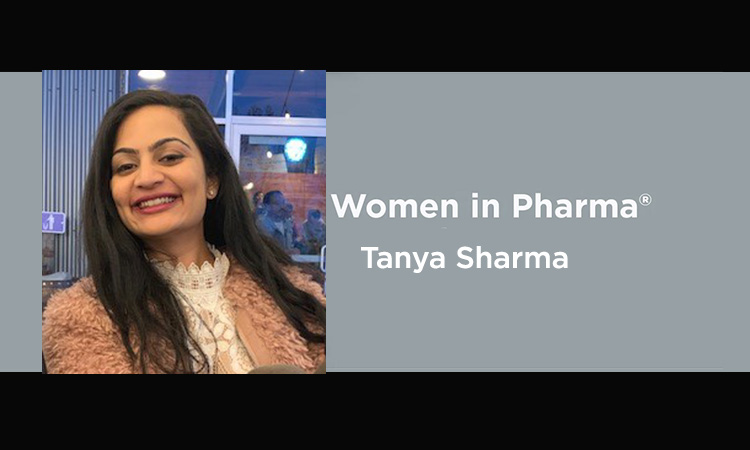
A Women in Pharma® Mentor Circle is a group of diverse professionals that engages on topics that are relevant in the industry, including maintaining a work/life balance and ways to develop a personal brand. Some Mentor Circles are situated within ISPE Chapters and Affiliates, while others have been started at pharmaceutical companies.
The Mentor Circles function as a connection to facilitate interactions for and between ISPE members to discuss personal and professional topics of interest. The program allows mentors and mentees, each with a different and diverse experience, to learn from each other, and includes a Mentor of the Month program that helps to introduce leaders to other countries and expands network opportunities.
“Early in the pandemic, I was in the Netherlands, and I was talking to a WIP leader in Singapore about the challenges of maintaining work/life balance during lockdown,” said Tanya Sharma, Principal Consultant, Assurea LLC, and International Mentor Circle Leader for WIP. The conversations inspired the growth of the Mentor Circles initiative. “It was a breath of fresh air to me and inspired me to consider how others might be dealing with these challenges.”
Sharma moved into the Mentor Circle leadership position after Jeannine Hillmer, Key Account Manager, USA, W.L. Gore Associates, Inc. Hillmer was instrumental in forming the program in 2019. The growth of Mentor Circles has been robust, rapidly exceeding the steering committee’s goals to increase the number of groups from six to 20 by the end of 2020. There are now 21 Mentor Circles (and counting) in 19 countries, including the US (over 10), the UK, Russia, Brazil, Ireland, Indonesia, Japan, India, and Singapore.
“The level of engagement has been phenomenal,” Sharma said. “We didn’t think it would be picked up like it has been all over the world.”
Scott Fotheringham



